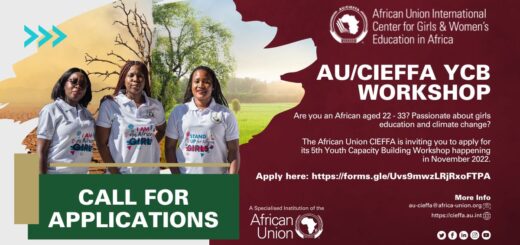Background
About Coalition on Violence Against Women (COVAW)
COVAW is a national non-profit women’s rights organization that was established in 1995 to respond to the silence of the Kenyan society in addressing Violence Against Women and Girls (VAWG). Currently, COVAW focuses on five strategic areas as informed by its Strategic Plan 2018-2023, namely Access to Comprehensive SRHR and SGBV services, Access to Justice, Women’s Economic Empowerment, Women’s Leadership Development and Institutional Development. COVAW Strategic Plan 2018-2023 https://covaw.or.ke/wp-content/uploads/2018/09/COVAW-Strategic-Plan-2018-2023-Full-Version.pdf
COVAW’s vision is a society where women and girls enjoy equal rights, freedoms and thrive in safe spaces. COVAW’s mission is to champion the rights of women and girls to be free from all forms of violence. COVAW is guided by its core values of respect, integrity, solidarity and commitment in improving the lives of its primary beneficiaries – women and girls.
About the Project
COVAW with support from Amplify Change is implementing a one-year project titled ‘Mitigating Gender Based Violence through enhancing access to Sexual Reproductive Health Rights in Narok County’. The project is being implemented in three areas namely: Narok South (Morloo Village); Narok North (Eneengetia Village) and Narok East (Sintakara village). The project seeks to achieve the following objectives:
- To enhance awareness on FGM and SRHR.
- To strengthen the capacity of anti-FGM movement and SRHR actors such as CSOs, public officers, community-key influencers among others.
- To enhance access to SRH services in Narok County.
The Purpose of the Consultancy
The purpose of this consultancy is to develop a simplified manual for engaging young people i.e. girls and boys on access to youth friendly SRH services in Narok County.
The objectives of developing the manual include:
- To increase young people’s knowledge on Sexual Reproductive Health Rights and the SRH legal framework.
- To increase young people’s understanding on sexuality and behaviors and the consequences of risky sexual behaviors.
- To demystify myths and misconceptions that hinder access to Sexual Reproductive Health Services.
- To encourage young people to seek SRH services to prevent unplanned pregnancies and protect themselves from Sexually Transmitted Infections(STIs).
Methodology and Scope of Work
The consultant will be tasked to:
- Package the content in an attractive and creative manner.
- Use illustrations relevant and familiar to the communities in Narok county.
- Ensure proper referencing in case content is from another source.
- Develop the manual in English.
In close coordination with COVAW, the consultant will develop the SRH manual which should cover the following:
1.Understanding Sexual and Reproductive Health Rights
-
- What is Sexual Reproductive Health?
- What are the constitutional and legal provisions on Sexual and Reproductive Health? (Human Rights-Based Approach Framework in Sexual and Reproductive Health)
2.Male and female reproductive system
- List the main organs in the male and female reproductive systems
- Explain the process of menstruation and fertilization.
3.Adolescence and puberty; understanding physical and emotional changes that happen during adolescence.
4.Understanding social norms related to SRH that are relevant amongst the communities in Narok County
- Cultural values of communities in Narok County
- Attitudes towards embracing SRHR
5.Access to Sexual and Reproductive Health Services and Information
- Gaps in accessing SRH services and information in Narok County
- Demystifying myths and misconceptions hindering access to comprehensive Sexual and Reproductive Health services
- The role of men and boys in ensuring women and girls have access to SRH services
6.Youth friendly SRH services and comprehensive sexuality education
- A youth centered approach towards provision of youth friendly SRH services
- Meaningful youth participation in comprehensive sexuality education
- Identifying the strategies for implementing SRH Youth Friendly Services such as peer-to-peer services to increase coverage and accessibility.
7.Understanding sexuality and behavior
- Explain how sexuality affects behavior as well as explore messages about sexuality within Narok communities.
- Describe the consequences of risky sexual behavior for adolescents
8.Discuss on teenage pregnancy and prevention measures.
- Discuss conception by explaining the terms fertilization and implantation.
- Discuss body changes that occur due to pregnancy
- Discuss normal pregnancy and ectopic pregnancy
- Describe the risks associated with teenage pregnancy and measures to prevent including abstinence.
9.Understanding the concept of safe and unsafe abortion.
- Define and differentiate between safe and unsafe abortion.
- Identify unsafe methods of abortion that have been used by girls.
- Identifying the risks and complications resulted by unsafe abortion.
- Prevention of unwanted pregnancies to reduce cases of unsafe abortion
10.Contraceptives/family planning
- Define the terms contraceptives and family planning and explain the difference
- Discuss different forms and types of contraceptives
- Discuss facts and myths about contraceptives
- Requirements for use of contraceptives by young persons
11.Sexually Transmitted Infections
- Explain the most common STIs including the typical symptoms.
- Explain the treatment and management of STIs.
- Differentiate between facts and myths about STIs
12.Consent of the young people in access to SRH services
- Occasions when consent is required.
- The importance and requirement of informed consent in access to SRH services by young persons.
13.Roles and functions of stakeholders and community members in advocating for SRHR
Expected Outputs and Deliverables:
The following will be the expected deliverables and outputs of consultancy:
1st Draft Document
The draft document will contain information as indicated in the scope above. Timely feedback on the 1st draft will be provided by the program team.
2nd Draft document
The revised training manual will synthesize all information, conclusions and recommendations taking into account all comments and additions from COVAW following the submission of the 1st Draft Document. In case the 2nd draft document is not satisfactory to either parties, communication and the work should continue till an approved 2nd draft.
Preparation Documents
All documents used in the preparation of this assignment such as progress reports, project documents, templates, etc. are expected to be submitted to COVAW together with the 2nd draft document.
Validation Meeting
COVAW will organize a feedback meeting. The consultant will make a presentation to the program team on the contents of the training manual. The meeting will be an opportunity to clarify outstanding aspects of the manual before their finalization.
Produce Final Document
The consultant will be expected to produce the manual in English language which will include the main issues discussed and all the components provided by COVAW during the validation meeting. The consultant shall determine the substantive content of the resources. The manual should be printed in both sides. The manual must be formatted (edited, content layout and design) ready for publication (in a printable final version). Must submit one printed copy.
General Terms and Conditions: Confidentiality and Authorship
Ownership and copyright of the simplified manual- The consultant will submit all the original document to COVAW. The consultant shall not re-produce information of this exercise in any form (electronic, hard copies, etc.) to third party without written permission from COVAW.
Timeframe
The overall consultancy is expected to take 30 working days including preparation phase. The consultant should be able to undertake some of the tasks concurrently to fit within the planned COVAW work plan and timeframe, without compromising the quality of work.
The consultant will be supervised and guided directly by COVAW and the consultant will be required to meet the expected deliverables listed during the period of the consultancy.
Responsibilities
COVAW will be responsible for the following:
- Holding an entry meeting with the consultant
- Sharing the relevant COVAW background organizational information, project documents and providing contacts for the program team in charge.
- Review, discuss and improve the drafts produced from reviewed manual.
- Providing the consultant with specific information and feedback within the stipulated time.
- Validate the final training manual
The consultant will be responsible for the following:
- Developing a simplified manual
- Presentation of the simplified manual to the program staff
- Incorporating recommendations and feedback in the draft of simplified manual
- Preparation of final draft document of simplified manual
- Submission of the final simplified manual to COVAW
Consultancy Competencies, Experience and Skills requirements:
- Degree in Social Sciences or public health (with experience on gender work), Human Rights, Research, or related field.
- Work experience in the non-profit sector in dealing with SRHR, human rights/SGBV issues.
- Extensive experience in developing training manuals for similar projects that work with the marginalized groups including women and girls.
- Good understanding of Human Rights (SRHR), SGBV and Social norms.
- High level of professionalism and ethics
Application
All applications with a cover letter specifying professional qualifications, anticipated cost and timeline for the consultancy, at least one sample of training manual/illustrations of previous work related to this assignment and referees from the organizations you have developed training manuals for should be submitted on or before, Monday 20th June, 2022 5.00 PM EAT via email to recruit@covaw.or.keor with subject: ‘Simplified Manual on Sexual and Reproductive Health Rights, Narok County.’








